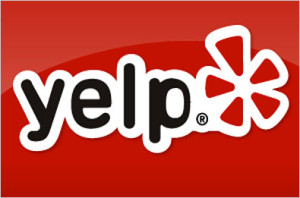Doug Powell, a former professor of food safety at Kansas State University who now lives in Australia and writes for barfblog.com, regards Yelp and social media as potentially useful tools for public-health investigators.
 “But it doesn’t replace boots on the street, the epidemiological work that people have to do,” he said. “All these things have to be taken with a grain of salt, because Yelp is a business.”
“But it doesn’t replace boots on the street, the epidemiological work that people have to do,” he said. “All these things have to be taken with a grain of salt, because Yelp is a business.”
That’s what I told Barbara Feder Ostrov, writing for The Atlantic and PBS, who says that when an outbreak of Shigella sickened 98 diners at a San Jose restaurant last weekend, Yelp reviewers were on the case, right alongside public health officials.
“PLEASE DO NOT EAT HERE!!!!” Pauline A. wrote in her Oct. 18 review of the Mariscos San Juan #3 restaurant. “My sister in and brother-in-law along with his parents ate here Friday night and all four of them ended up in the hospital with food poisoning!!!”
That same day, the Santa Clara County Public Health Department shut down the restaurant. Two days later, officials announced that more than 80 people who had eaten there had become acutely ill, with many requiring hospitalization. Twelve diners went to intensive care units.
Since then, the outbreak has grown to more than 90 cases in Santa Clara and Santa Cruz counties.
Some health researchers and public health professionals believe consumer review sites like Yelp might just help them identify and investigate food poisoning outbreaks similar to this one. It’s not unlike using Google searches to track potential flu and Dengue outbreaks.
Public health workers in New York, aided by Columbia University researchers, scanned thousands of Yelp reviews in 2012 and 2013 to find previously undetected food-borne illness, unearthing nearly 900 cases that were worthy of further investigation by epidemiologists. Ultimately, the researchers found three previously unreported restaurant-related outbreaks linked to 16 illnesses that would have merited a public health investigation if officials had known of them at the time. Follow-up inspections of the restaurants found food-handling violations.
In another study, researchers from Boston Children’s Hospital analyzed more than 5,800 Yelp reviews of food services businesses near 29 colleges in 15 states, concluding that reviews describing food poisoning tracked closely with food-borne illness data maintained by the U.S. Centers for Disease Control and Prevention. The timeliness and often-graphic details of the reviews could prove useful for public health agencies investigating food poisoning outbreaks, the researchers concluded.
Researchers also have examined Twitter and Facebook as possible food-borne illness surveillance tools, and Chicago’s public health agency automatically sends information about its Foodborne Chicago reporting site to local Twitter users who complain of food poisoning.
But Yelp’s usefulness for epidemiologists is going to depend a lot on how it handles food poisoning complaints down the road.
The company has been accused of approaching restaurants to remove negative reviews in exchange for advertising dollars, although a class action lawsuit on those grounds was dismissed.
On Tuesday, the company placed an “Active Cleanup Alert” notice on Mariscos San Juan #3’s review page noting that because the business “recently made waves in the news,” Yelp would “remove both positive and negative posts that appear to be motivated more by the news coverage itself than the reviewer’s personal consumer experience with the business.”
While some reviews were easily visible, others were segregated into Yelp’s “not currently recommended” category, which requires readers to click to see them and do not figure in the establishment’s overall rating.
